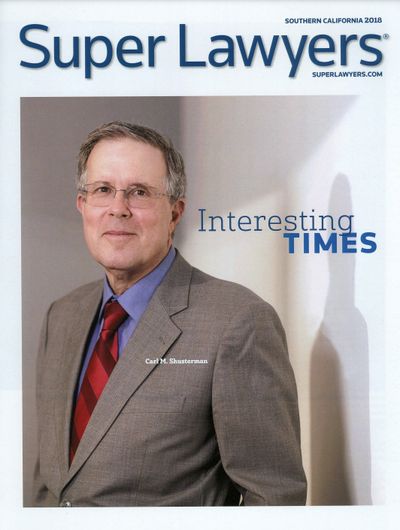 The new health insurance requirement for persons applying for green cards abroad was scheduled to go into effect on November 3, 2019. It could prevent hundreds of thousands of persons from getting green cards. However, on November 2, 2019, a Federal Judge issued a nationwide temporary restraining order which blocks the implementation of the health insurance requirement.
Below, we explain the new health insurance requirement, who it applies to and whether it is likely that it will become effective on November 3. We also provide links to relevant web pages and will continue to update this article as deadline approaches.
The new health insurance requirement for persons applying for green cards abroad was scheduled to go into effect on November 3, 2019. It could prevent hundreds of thousands of persons from getting green cards. However, on November 2, 2019, a Federal Judge issued a nationwide temporary restraining order which blocks the implementation of the health insurance requirement.
Below, we explain the new health insurance requirement, who it applies to and whether it is likely that it will become effective on November 3. We also provide links to relevant web pages and will continue to update this article as deadline approaches.
Health Insurance Requirement
In a statement dated October 4, President Trump put announced a Presidential Proclamation on the Suspension of Entry of Immigrants Who Will Financially Burden the United States Healthcare System.
The Proclamation provides as follows:
"(a) The entry into the United States as immigrants of aliens who will financially burden the United States healthcare system is hereby suspended and limited subject to section 2 of this proclamation. An alien will financially burden the United States healthcare system unless the alien will be covered by approved health insurance, as defined in subsection (b) of this section, within 30 days of the alien’s entry into the United States, or unless the alien possesses the financial resources to pay for reasonably foreseeable medical costs." In other words, a consular officer at a U.S. Embassy or Consulate abroad may deny an immigrant visa to a person who lacks health insurance in the U.S. or who he/she believes is likely to obtain healthcare benefits which are even partly subsidized by U.S. taxpayers. This would includes not only Medicaid, but even coverage which is, in part, subsidized under the Affordable Care Act (aka Obamacare). Therefore, it is important that persons sponsoring their relatives for green cards help them to obtain private health insurance in the U.S. before they attend their immigrant visa interviews abroad.
Does the New Health Insurance Requirement Apply To You?
Unlike the proposed Public Charge Rule which applies to nearly everyone, the new Health Insurance Requirement applies only to persons who are applying for green cards at U.S. Embassies and Consulates abroad. It does not apply to persons who are applying to adjust their status in the U.S. Nor does it apply to those applying for temporary visas or to extend or change their nonimmigrant status in the U.S.
Furthermore, the Proclamation states that it does not apply to
- Persons who already have green cards;
- Returning residents;
- Children of U.S. citizens;
- Refugees;
- Persons from Iraq or Afghanistan who qualify for Special Immigrant Visas;
- Certain parents of U.S. citizens; and
- A variety of other classes of immigrants.
Despite this, the Migration Policy Institute estimates that "the new health insurance requirement could prohibit the entry of roughly 375,000 immigrants annually — mainly family-based immigrants who make up the majority of those getting green cards from abroad." Since most employment-based immigrants adjust their status in the U.S., they are not subject to the new requirement. One exception, however, is registered nurses, who, due to the absence of temporary working visas, must immigrate from abroad. It is, therefore, incumbent on their sponsoring employers to include in their contracts a clause which guarantees that they and their spouses and children will receive health insurance within 30 days of their arrival in the U.S.
Will the Health Insurance Requirement Go Into Effect on November 3, 2019?
We can expect this new proclamation to be challenged in court before its scheduled implementation on November 3. If so, Federal Judges may issue injunctions preventing the Administration from enforcing the proclamation just like the many executive actions targeting legal immigration before it. With the timing of this proclamation so near to the Health Insurance Marketplace’s open enrollment period — which begins on November 1 and ends on December 15 — both health care and immigrant advocates will push against the administration’s attempts to disrupt the health insurance market and target a legal path to immigration. Otherwise, persons who have been waiting in line for green cards for many years, or even decades, could be blocked from reuniting with their families in the U.S. by reason of this last minute executive overreach.
Health Insurance Requirement - Additional Resources
- Judge Blocks Trump’s Plan to Bar Immigrants Who Can’t Pay for Health Care (11-02-19)
- US Sued Over Health Insurance Rule For Immigrant Families (10-31-19)
- Health Insurance Test for Green-Card Applicants Could Sharply Cut Future U.S. Legal Immigration
- Letter from 2 Senators to HHS Secretary Opposing the Presidential Proclamation (10-22-19)
